CeRDI Newsletter Winter 2022
Tackling family violence in the Central Highlands: DataPRESS project
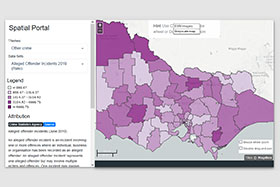 |
|
|
DataPRESS project Spatial Portal
|
|
| |
|
A major project milestone associated with the DataPRESS project has culminated in the development of a regional family violence data portal for the Central Highlands region. The DataPRESS project was initiated by the Central Highlands Integrated Family Violence Committee (CHIFVC) in partnership with Ballarat Health Services and CHIFVC member agencies from the region.
CeRDI has been instrumental in designing and developing the DataPRESS portal. Commencing in 2019, the project was established to federate local data and public health data within a comprehensive online repository, with the aim of improving operational and strategic decision-making through the availability of data. Features of DataPRESS include spatial mapping of integrated sector data provided by CHIFVC members, the ability to draw together a variety of data to support comprehensive demographic and service user profiles and the generation of community profiles based on service needs, drivers and impacts of family violence.
-
Access to region-specific service data has long been a challenge for integration committees, tasked with improving the family violence system within a region. Individual agencies and organisations have data relevant to their service delivery, and routinely report to government, but this data is compiled only to provide a state-wide view of the current state of play. This challenge for the CHIFVC’s aim to strengthen family violence responses has been addressed through a consolidated and current online data repository which is accessible via password to CHIFVC member agencies. Data via the digital platform can now support CHIFVC in area service planning; the planning, development and assessment of the success of initiatives designed to improve family violence response; and additionally enable member agencies to understand their role in a broader service system. DataPRESS is providing insights about how CHIFVC is engaging and serving the region, and how the service system is responding to family violence. Additional capacity for tracking demand and capacity of the family violence system is built into the system to be increasingly utilised over time.
The project was promoted at the national Stop Domestic Violence Conference 2021 held on the Gold Coast, December 1–3. Principal Strategic Advisor at CHIFVC, Dr Jess Cadwallader, gave a presentation on DataPRESS at the conference and showcased the importance and availability of regional data sets and data reporting via the portal. She received feedback, including from international sources, inspired by the approach taken in Central Highlands.
Planning for the second phase of the DataPRESS project is underway. Key activities are being finalised and include the future expansion of the service data available and amendments to data to consolidate existing data reporting mechanisms. Planning to expand DataPRESS to incorporate other regional areas of Victoria is also being considered. A formal research agenda between Federation University, CHIFVC and other universities is currently being developed.
Support for DataPRESS included funding from the R.E. Ross Trust.
My Farm Dashboard
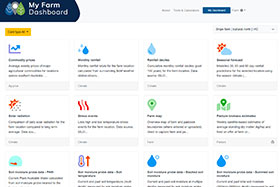 |
|
|
My Farm Dashboard
|
|
| |
|
My Farm Dashboard assists farmers to make better decisions based upon critical support information and data about their property. CeRDI has been instrumental in the development of the portal. The project involves extensive collaboration with industry organisations and is funded by the Australian Government’s National Landcare Program and the Grains and Research Development Corporation. Southern Farming Systems is the lead partner on the project. Other high rainfall zone cropping project partners include Victorian Limestone Producers Association, Precision Agriculture, Glenelg Hopkins Catchment Management Authority, Agriculture Victoria, Agriculture Kangaroo Island and the MacKillop Farm Management Group.
Developed in consultation with farmers, the My Farm Dashboard provides a series of information cards representing different farming decision needs. Users delineate their farm and paddock boundaries using editing tools in the mapping system, and then select cards that bring together the data and reports that suit their decision needs. This allows users to control the information they access and display. Climate records and seasonal forecast data from the Bureau of Meteorology, satellite derived pasture biomass estimates from Cibolabs, and historical commodity price data is available through the dashboard. The decisions available to farmers can thus be tailored to the farm location using the available data. Information can be readily changed and rearranged to reflect desired decision pathways.
-
My Farm Dashboard incorporates a number of specialist tools co-developed through the Smart Farm project including:
- a state-of-the-art satellite pasture estimation model calibrated and verified using hundreds of pasture cuts from twenty-two locations;
- a Lime Assist calculator that combines in one user-friendly model, technical information on lime quality from twenty-four lime producers/quarries (soil physical and chemical information, crop rotations and crop economics) to help producers make optimal liming decisions;
- a shared data network providing localised climate data from soil moisture probes and weather monitoring stations located at over 100 sites;
- climate information making rainfall predictions from the BoM ACCESS three-month climate model that have been processed by the CSIRO into a daily feed; and
- commodity price information enabling farmers and advisors to examine historic weekly prices for major commodities.
Access to tools and data (on climate, commodities, and production) through My Farm Dashboard will facilitate critical and timely decisions about farming practices, leading to better outcomes and resilience. It will also provide opportunities for other organisations and service providers to integrate their information products, which will enhance and expand to the existing tool suite.
The My Farm Dashboard shares links with the Decision Wizard, a project which enables better use of information, including user preferences and past experiences, for good decision making for farmers. The web-based platform guides farmers through a series of steps to build a framework to assist them to make business decisions about the productivity and profitability of their farm.
Since the official launch of the My Farm Dashboard, an extensive series of engagement events and activities have occurred across South Australia, Victoria and Tasmania. Recently this included agronomy expert Cam Nicholson, Nicon Rural Services, delivering two presentations at the Southern Farming Systems Sheepvention. A series of short demonstration videos have also been released with the launch of the Dashboard. Feedback from the initial Dashboard presentations have been very positive and there are early signs and interest from other organisations to partner on the project.
myfarmdashboard.sfs.org.au 
My Farm Dashboard - demonstration videos:
www.youtube.com/watch?v=VnOSFu5Kijg 
www.youtube.com/watch?v=MYnWiSlBuVw 
www.youtube.com/watch?v=gAYTUnEc820 
The final project report for Decision Wizard 
Improving water security for farms and lakes
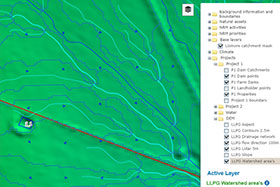 |
|
|
Figure 1. Farm dam with LiDAR
(Light Detection and Ranging) DEM,
drainage lines, flow direction
and sub-catchments.
|
|
| |
|
CeRDI’s Summer 2022 newsletter featured a story about work to improve farm water security and farm resilience in response to climate change in the Lake Corangamite area. Extensive work has since been completed leading to the development of spatial portal that provides landholders and farmers with access to information and data about water resources.
Ten landholders in the Cundare-Duverney and Leslie Manor Landcare areas are participating in the project. Each landholder completes an inventory of water use for their property. This data provides a benchmark of current water requirements in the district and will be used to generate an approximate water balance.
Led by CeRDI’s Rick Pope with Assoc Prof Peter Dahlhaus and Lismore Land Protection Group’s Landcare Facilitator Alicia Merriam, a high-resolution terrain model (digital elevation model or DEM) has recently been prepared for the region. It incorporates models for drainage lines, sub catchments and surface water flow directions as displayed in Figure 1.
-
This data can be used to estimate the rainfall runoff into farm dams. Volume calculations for the farm dams, identified in aerial imagery, has been undertaken as part of this work. Access to groundwater data has also been incorporated in the model with algorithms used to predict future water supply modelling to farms using the ACCESS1.0 model. The current models are for precipitation, evaporation, and temperature for RCP4.5 and RCP8.5 scenarios1. The models are represented as five-kilometre square grid cells with the average. This provides farmers with information to assist them to plan for variable water supplies and changes in climate, including drought, as show in Figure 2.
.jpg) |
|
Figure 2. Draft analysis for dam catchment yield.
|
A series of workshops will be held during October to launch the portal to landholders and farmers in the Lismore region.
This research is supported by the Department of Agriculture, Water and the Environment, through funding from Australian Government’s National Landcare Program, Smart Farms Small Grants, Round 3, and the project is managed by the Lismore Land Protection Group.
www.ccmaknowledgebase.vic.gov.au/nrmpp/nrmpp_map.php?section=my_catchment&landscape_zone=Lismore&map=59 
[1] The climate modelling community has developed Representative Concentration Pathways (RCPs) of greenhouse gasses to explore credible future options.
RCP4.5 - CO2 concentrations are only slightly mitigated until mid-century (peak around 2040), and the CO2 concentration levels out at around 540 ppm by 2100.
RCP8.5 - a future with little curbing of emissions, with a CO2 concentration continuing to rapidly rise, reaching 940 ppm by 2100.
Visualising Australasia’s Soils: Award Finalist
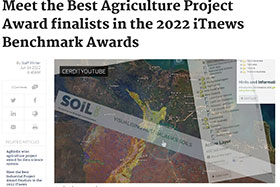 |
|
|
Visualising Australasia’s Soils: Award Finalist
|
|
| |
|
Visualising Australasia’s Soils was a finalist in the Best Agriculture Project category for the 2022 iTnews Benchmark Awards.
The iTnews benchmarking awards recognise leading information and technology projects in Australia across 12 categories. VAS was nominated for the Best Agricultural project, alongside two other finalists: Bartle Frere Bananas' Data-Driven Sustainable Smart Farming project; AgBioEn and LAB3 solution deployment for renewable energy. Finalists were selected in this category for progressing and improving access to, and use of, data that benefits our environment and agriculture sector.
Visualising Australasia’s Soils  (VAS) uses an online platform to provide Australasian farmers, agronomy practitioners, agricultural researchers and agribusinesses with access to data, information and knowledge about Australasian soils. Increased availability of soil data will encourage and enable the generation of new research ideas, collaborations and investment, both locally and globally.
(VAS) uses an online platform to provide Australasian farmers, agronomy practitioners, agricultural researchers and agribusinesses with access to data, information and knowledge about Australasian soils. Increased availability of soil data will encourage and enable the generation of new research ideas, collaborations and investment, both locally and globally.
-
The VAS project is led by CeRDI, under the direction of Principal Research Fellow Assoc Prof Peter Dahlhaus, and importantly includes a data stewardship and governance model that allows data contributors to set the rules about who has access to their data.
The Cooperative Research Centre for High Performance Soils (Soil CRC) has provided substantial funding for VAS to be expanded for the next two years. VAS will become an independent and enduring soil research data federation, enabling enhanced decision making and supporting profitability and resilience for Australasian agriculture.
CeRDI congratulates all finalists for these awards and the winner of the agriculture category, AgBioEn. This Melbourne-based company used a cloud and IoT system for improved crop yields while producing more agricultural wastes for biofuels conversion.
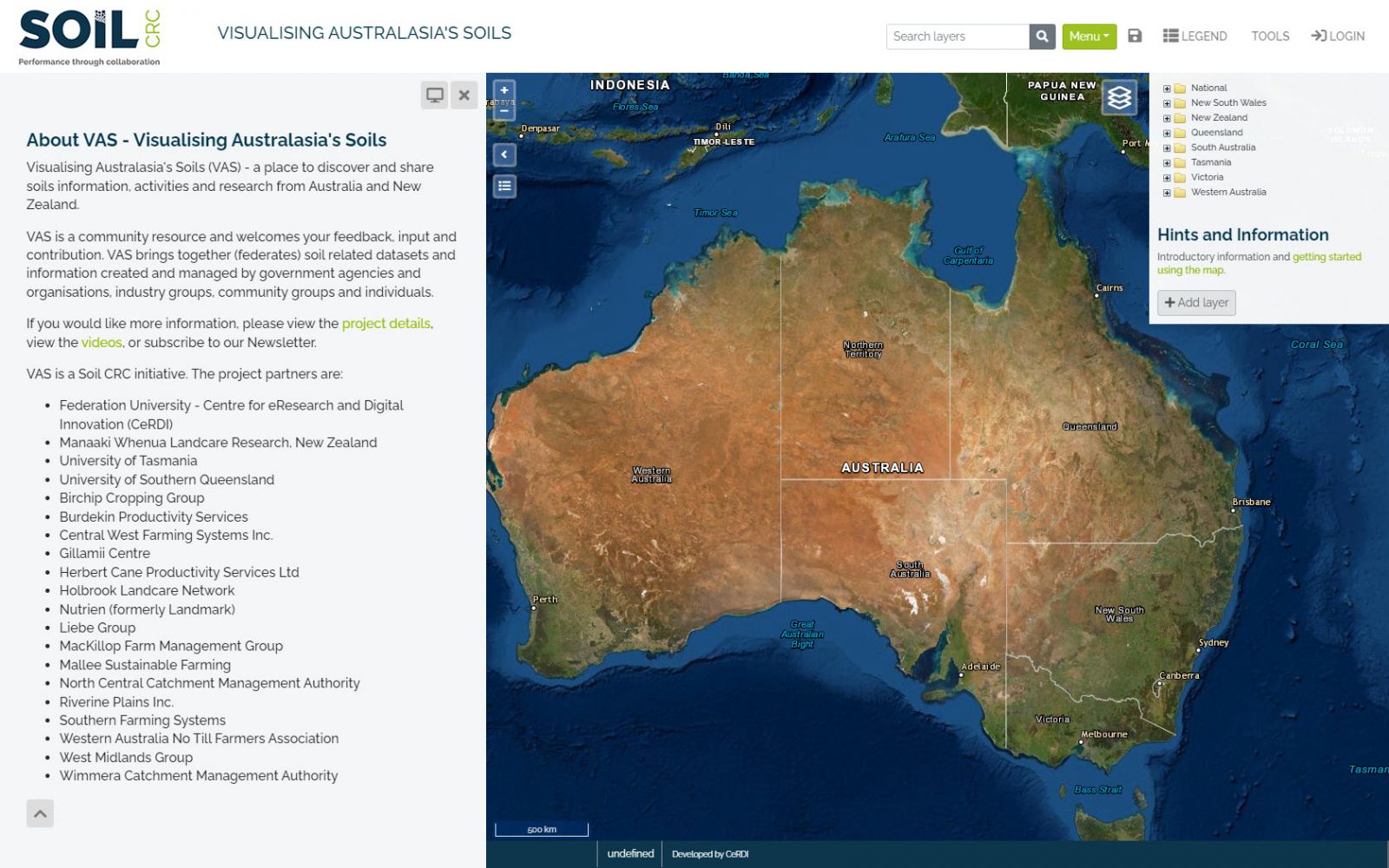 |
|
Visualising Australasia's Soils
|
To view Pete Dahlhaus and the other finalists talk about building environmental and agricultural success with data and insights visit: www.itnews.com.au/video/meet-the-best-agriculture-project-award-finalists-in-the-2022-itnews-benchmark-awards-581225 
Aboriginal Heroes: Documentary film
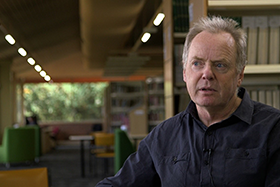 |
|
|
Associate Prof Fred Cahir discusses
the research during filming
of ‘Acts of Heroism”
|
|
| |
|
Associate Prof Fred Cahir recently collaborated with Wind and Sky Productions  in the production of a documentary film entitled 'Acts of Heroism
in the production of a documentary film entitled 'Acts of Heroism  '. The film explores the history of Aboriginal people in Victoria providing emergency rescues and assistance for non-Aboriginal people. The film represents an important milestone associated with the Aboriginal Heroes of Fire, Flood and Food project.
'. The film explores the history of Aboriginal people in Victoria providing emergency rescues and assistance for non-Aboriginal people. The film represents an important milestone associated with the Aboriginal Heroes of Fire, Flood and Food project.
A citizen history approach was developed in collaboration with Indigenous and non-Indigenous communities, historians and historical societies to conduct a comprehensive research program documenting Aboriginal acts of heroism. According to historians Associate Professor Fred Cahir and Dr Dan Tout from Federation University, hundreds of colonists in 19th century Victoria were rescued from bushfires, flooded rivers or from being lost in the bush by Aboriginal people. The Aboriginal Heroes project involved searching and documenting the stories of Aboriginal heroes in shaping Victoria’s history between 1790 and 1930.
-
This project has uncovered an extensive historical record of evidence of Aboriginal people saving non-Aboriginal people from bushfire, drowning and the tracking of lost people and their animals. A dedicated project website  has been developed documenting the extensive catalogue of information, stories, artefacts and images linked to these acts of heroism. CeRDI contributed to the technical requirements and development of the website. A feature is a mapping portal
has been developed documenting the extensive catalogue of information, stories, artefacts and images linked to these acts of heroism. CeRDI contributed to the technical requirements and development of the website. A feature is a mapping portal  providing a spatial representation of the many historical records documenting the heroic Aboriginal acts in Victoria.
providing a spatial representation of the many historical records documenting the heroic Aboriginal acts in Victoria.
The documentary film offers complementary understanding of the research undertaken with the project. The research team and representatives from the indigenous community have been consulted on and are featured in the documentary. In commenting on this film Dr Fred Cahir states “The film contributes to the public narrative about an essential chapter to the State’s history that identifies, acknowledges and celebrates Aboriginal history and indigenous acts of heroism”. A book will soon be released, as a compendium of research linked to this project.
The use of different mediums for documenting this research has broad application and enables access to a wide audience. The outputs are intended for curriculum development in schools, and to promote cultural heritage tourism. The resources will also be available to the general public to engender broader community knowledge about Victoria’s shared history and acts of heroism.
The project was supported with funding from the Telematics Trust.
Higher Degree by Research profile: Andrew MacLeod
.png) |
|
|
Andrew MacLeod
|
|
| |
|
Andrew, who has been CeRDI’s Manger Technical Projects since 2002, is now using his extensive experience to guide a program of research as part of his studies towards a Doctor of Philosophy degree. Andrew commenced his PhD at CeRDI in 2021 and is utilising both his technical expertise and research interests in an exploration of how disparate data streams, such as climate, soils, water and topography can be harmonised using the principles of Linked Data. He aims to advance semantic interoperability across complex agricultural and environmental data holdings. His supervisory team includes CeRDI’s Associate Professor Peter Dahlhaus (principal supervisor), Dr Birgita Hansen, Dr Nathan Robinson and CSIRO’s Dr Simon Cox.
Food security is a global challenge necessitating more sustainable and productive methods to farming. The use of data to drive evidence-based decision making in agriculture is crucial. Despite the increasing availability of data, the transformation of these data into pragmatic actions to, for example, improve soil, plant and water management has proven difficult. This is largely due to the distributed custodianship and heterogeneity of agri-environmental data, with a lack of interoperability making it difficult to integrate, establish shared meaning, and thereby turn data into knowledge.
-
This research will seek to identify solutions to these issues through an investigation involving the Semantic Web which offers potential solutions to problems using design principles for interlinking structured data through the web. These principles provide the building blocks for addressing the data diversity challenges but are yet to be widely applied in agriculture. The barriers and opportunities of attaining advanced levels of semantic interoperability with application to agri-environmental scenarios will be explored through the research. Experiments will be conducted involving water, soils and tools for improving data integration in non-experts. The outcomes of the research will be applicable to other domains where similar data diversity challenges exist.
Andrew successfully completed his confirmation of candidature in June and is now planning the next phase of his research, and the commencement of the first of two experiments to be undertaken this year. He plans to complete his studies in late 2024.
Andrew’s research is supported by an Australian Government Research Training Program (RTP) Fee-Offset Scholarship through Federation University Australia. Andrew is a recipient of a Food Agility CRC postgraduate scholarship and stipend.
www.cerdi.edu.au/cb_pages/andrew_macleod.php
News snippets
.jpg) |
|
|
Dr Nathan Robinson delivers a presentation
at the Soil CRC Conference
|
|
| |
|
Online Farm Trials: Online Farm Trials  (OFT) is a web-based system providing open and free access to on-farm, or field based, cropping research trial data and information. It is a collaborative project between CeRDI and the Grains Research and Development Corporation (GRDC). OFT contains interactive maps, searching and viewing tools that enable users to access relevant information on a range of grains trials research on specific topics, issues and methods.
(OFT) is a web-based system providing open and free access to on-farm, or field based, cropping research trial data and information. It is a collaborative project between CeRDI and the Grains Research and Development Corporation (GRDC). OFT contains interactive maps, searching and viewing tools that enable users to access relevant information on a range of grains trials research on specific topics, issues and methods.
Recent enhancement to OFT include the launch of Trials in Progress  . This new feature enables contributors to upload data from their current grains trials to a template which is then uploaded into OFT. Data includes trial design details, treatments, and soil types. Researcher details can also be added to Trials in Progress, providing an opportunity for contributors to network with others in the industry about their current grain trials. The OFT portal contains trials from various organisations, including but not limited to Southern Pulse Agronomy, Birchip Cropping Group and McKillop Farm Management Group.
. This new feature enables contributors to upload data from their current grains trials to a template which is then uploaded into OFT. Data includes trial design details, treatments, and soil types. Researcher details can also be added to Trials in Progress, providing an opportunity for contributors to network with others in the industry about their current grain trials. The OFT portal contains trials from various organisations, including but not limited to Southern Pulse Agronomy, Birchip Cropping Group and McKillop Farm Management Group.
-
New CeRDI staff: Welcome to Kate Roberts who has been recently joined the CeRDI team as research data specialist (data governance and architecture). Kate is working on a research data management project which has been funded by the Grains Research and Development Corporation. Kate’s role and experience will be profiled in a future issue of the newsletter.
CeRDI workshop: In July, Prof Andrew Bennett gave a workshop in CeRDI on the topic of research publications. Andrew is Professor of Ecology at La Trobe University with extensive research experience and publications. During the workshop, Andrew discussed the importance of publishing as a whole-of-community activity to support and inform research impact and culture. The session was attended by CeRDI researchers and HDR candidates, along with other research staff from the University.
Soil CRC Conference: Nathan Robinson, Andrew MacLeod and Peter Weir presented and Jude Channon attended the Soil CRC conference held in Adelaide on 23-25 August. The event provided an opportunity to share the latest insights and learnings with researchers and industry stakeholders involved in projects funded by the Soil CRC. CeRDI is leading and/or partnering on the following Soil CRC funded projects: Visualising Australasia’s Soils; Knowledge sharing for good soil stewardship; Matching soil performance indicators to farming systems, and a coordinated and consistent approach to managing and enabling soil data. A HDR research project is also supported in CeRDI with funding from the Soil CRC. PhD candidate Peter Weir is completing a PhD examining in paddock variability of plant available water.
During the conference Nathan presented a session on data governance in the Soil CRC, and Andrew provided an update on Visualising Australasia’s Soils.
.jpg) |
|
.jpg) |
|
Dr Nathan Robinson delivers a presentation
at the Soil CRC Conference
|
|
Andrew MacLeod provides an update on
VAS at the Soil CRC Conference
|
SciDataCon 2022: CeRDI’s Dr Megan Wong recently participated in the SciDataCon 2022  . The conference comprised hybrid and virtual events with workshops and presentations supporting all aspects of data in research, society and policy. Megan and colleagues from CSIRO presented a workshop on Scientific Vocabularies: needs, validity, governance and sustainability. The session addressed two topics: 1) governance concerns and 2) encoding of governance information. Megan co-presented on vocabulary governance, and shared insights about governance and maintenance considerations for FAIR vocabularies in Australian soil domains.
. The conference comprised hybrid and virtual events with workshops and presentations supporting all aspects of data in research, society and policy. Megan and colleagues from CSIRO presented a workshop on Scientific Vocabularies: needs, validity, governance and sustainability. The session addressed two topics: 1) governance concerns and 2) encoding of governance information. Megan co-presented on vocabulary governance, and shared insights about governance and maintenance considerations for FAIR vocabularies in Australian soil domains.
www.scidatacon.org/IDW-2022/sessions/461/ 
Digital Agrifood Summit 2022: The Digital Agrifood Summit 2022 was held in Wagga Wagga, 1-2 June, and focused on digital trends and technologies transforming Australian agriculture. The events offered an up-close and practical examination of the digital trends and technologies transforming Australian agriculture. CeRDI had a strong representation at the Summit with Data Policy Manager, Gabi Ceregra providing panel expertise to the forum. Assoc Prof Helen Thompson, Dr Birgita Hansen, together with HDR candidates Andrew MacLeod, Dr Rekha Attanayake and Dr Basharat Ali also attended the Summit.
.jpg) |
|
.jpg) |
|
Dr Helen Thompson at the Summit with
Stephen Summerhayes, Food Agility CRC
Senior Project Manager - Rangelands
Carbon Project
|
|
CeRDI’s Andrew MacLeod (Left)
and Birgita Hansen with
delegates from the Food
Agility Summit.
|
Recent publication:
Collaço de Carvalh, S.H., Cojoianu, T., & Ascui, F. (2022). From impacts to dependencies: A first global assessment of corporate biodiversity risk exposure and responses. Business Strategy and the Environment, 1-5. DOI: 10.1002/bse.3142 
Hansen B.D. & Bonney, P. (in press). Learning from successful long-term citizen science programs. Pacific Conservation Biology.
Welgama, A., Robinson, N., Singarayer, F., Larkis, J. (in press). Effect of gypsum use on various crop yileds in sodic agricultural soils of Australia: A meta-analysis. Crop and Pasture Science.
Wong, M., Levett, K., Lee, A., Box, P., Simons, B., David, R., MacLeod, A., Taylor, N., Schneider, D., & Thompson, H. (2022). Development and Governance of FAIR Thresholds for a Data Federation. Data Science Journal, 21(13), 1–12. doi.org/10.5334/dsj-2022-013 
Higher Degrees by Research news
Conference attendance: Peter Weir attended and presented at Soil Science Australia - Soil Physics Workshop, Wagga, 23-24 June 2022. His presentation ‘In-paddock soil moisture spatial variability for dryland cropping’ is informed by his PhD research which is examining in-paddock variability of plant available water: www.cerdi.edu.au/cb_pages/peter_weir.php
-
CeRDI PhD candidates showcase their research: CeRDI Higher Degree by Research candidates presented their work at the 2022 Federation HDR Research Conference on 21 July 2022. All three presenters introduced their audience to the complexities of sustainable agriculture. Dr Basharat Ali presented an interesting analysis of the diversity of factors contributing to sustainable agriculture, Rob Clark talked about the challenges of identifying a model that best predicts grain yields in Australia and Peter Weir considered the problem of estimation of the amount of water in soils that is available to plants.
.jpg) |
|
.jpg) |
|
CeRDI PhD candidates attending the HDR Conference (L-R):
Peter Weir, Dr Rehka Atanayake, Dr Basharat Ali, Robert Clark.
|
|
CeRDI PhD candidate Robert Clark presenting at the
Federation University HDR Conference
|
About CeRDI
The Centre for eResearch and Digital Innovation (CeRDI) is a research centre at Federation University Australia focused on:
- the application of information and communications technology (ICT) and the development of innovative, world class knowledge management systems;
- significantly advancing the digital literacy and knowledge management capabilities of partner organisations;
- fostering partnerships for the development and implementation of eResearch with industry, government and academia; and
- measuring the impact of eResearch and digital innovation through longitudinal research.
Contact CeRDI
For further details about CeRDI’s diverse portfolio of research please visit our website: www.cerdi.edu.au, or contact Director, Associate Professor Helen Thompson: h.thompson@federation.edu.au
Mailing Address
Centre for eResearch and Digital Innovation
Federation University Australia
PO Box 691
Ballarat Vic 3353
Office Location
Suite 15, Greenhill Enterprise Centre
Ballarat Technology Park
University Drive
Mount Helen Vic 3350
Phone: +61 3 5327 9314
Email: support@cerdi.edu.au
Subscribe to the CeRDI Newsletter Mailing List
I would like to subscribe to the CeRDI Newsletter Mailing List to receive notifications of future CeRDI Newsletters.
If you have any feedback, please email newsletter@cerdi.edu.au

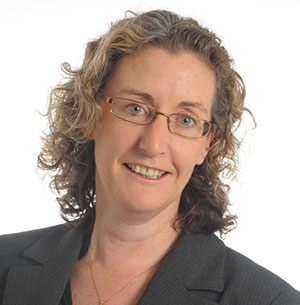




![]() (VAS) uses an online platform to provide Australasian farmers, agronomy practitioners, agricultural researchers and agribusinesses with access to data, information and knowledge about Australasian soils. Increased availability of soil data will encourage and enable the generation of new research ideas, collaborations and investment, both locally and globally.
(VAS) uses an online platform to provide Australasian farmers, agronomy practitioners, agricultural researchers and agribusinesses with access to data, information and knowledge about Australasian soils. Increased availability of soil data will encourage and enable the generation of new research ideas, collaborations and investment, both locally and globally.
![]() in the production of a documentary film entitled 'Acts of Heroism
in the production of a documentary film entitled 'Acts of Heroism ![]() '. The film explores the history of Aboriginal people in Victoria providing emergency rescues and assistance for non-Aboriginal people. The film represents an important milestone associated with the Aboriginal Heroes of Fire, Flood and Food project.
'. The film explores the history of Aboriginal people in Victoria providing emergency rescues and assistance for non-Aboriginal people. The film represents an important milestone associated with the Aboriginal Heroes of Fire, Flood and Food project..png)
.jpg)
![]() (OFT) is a web-based system providing open and free access to on-farm, or field based, cropping research trial data and information. It is a collaborative project between CeRDI and the Grains Research and Development Corporation (GRDC). OFT contains interactive maps, searching and viewing tools that enable users to access relevant information on a range of grains trials research on specific topics, issues and methods.
(OFT) is a web-based system providing open and free access to on-farm, or field based, cropping research trial data and information. It is a collaborative project between CeRDI and the Grains Research and Development Corporation (GRDC). OFT contains interactive maps, searching and viewing tools that enable users to access relevant information on a range of grains trials research on specific topics, issues and methods.![]() . This new feature enables contributors to upload data from their current grains trials to a template which is then uploaded into OFT. Data includes trial design details, treatments, and soil types. Researcher details can also be added to Trials in Progress, providing an opportunity for contributors to network with others in the industry about their current grain trials. The OFT portal contains trials from various organisations, including but not limited to Southern Pulse Agronomy, Birchip Cropping Group and McKillop Farm Management Group.
. This new feature enables contributors to upload data from their current grains trials to a template which is then uploaded into OFT. Data includes trial design details, treatments, and soil types. Researcher details can also be added to Trials in Progress, providing an opportunity for contributors to network with others in the industry about their current grain trials. The OFT portal contains trials from various organisations, including but not limited to Southern Pulse Agronomy, Birchip Cropping Group and McKillop Farm Management Group.
.jpg)

.jpg)
.jpg)
.jpg)
.jpg)
.jpg)
.jpg)